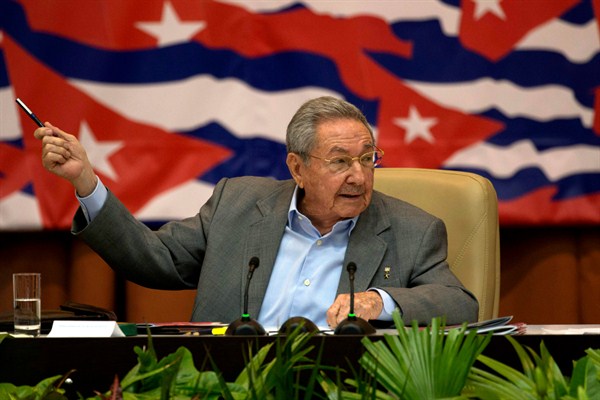The Seventh Congress of the Communist Party of Cuba ended Tuesday, April 19 with First Secretary Raul Castro declaring that the “principal tasks” of the party going forward are “the development of the national economy, along with the struggle for peace and ideological firmness.” That neatly summed up the major themes discussed by the 1,000 delegates during the previous three days, and the challenges the party faces on all three fronts as it manages normalizing ties with the United States and opening up its economy while preserving the state’s socialist identity.
The economy was the main focus of the conclave, just as it was in 2011 when Castro launched the so-called updating of Cuba’s antiquated Soviet-era economic model, seeking to replace it with a Cuban version of market socialism. Three of the four documents approved by the congress focused on economics: a review of economic performance since 2011 and a plan for 2016 to 2021; a broad national development plan looking out to 2030; and the “conceptualization of the Cuban economic and social model of socialist development,” a theoretical blueprint of what “prosperous and sustainable” socialism will look like once the economic transformation is complete.
The performance review was disheartening. Only 21 percent of the 313 economic guidelines adopted in 2011 have been fully implemented, a slow pace that Castro blamed on “the burden of an outdated mentality” and “an attitude of inertia.” Resistance came from people “nostalgic” for the past, but Cuba was not restoring capitalism, he promised. Private property and markets were not incompatible with socialism, as the experiences of Vietnam and China prove.

